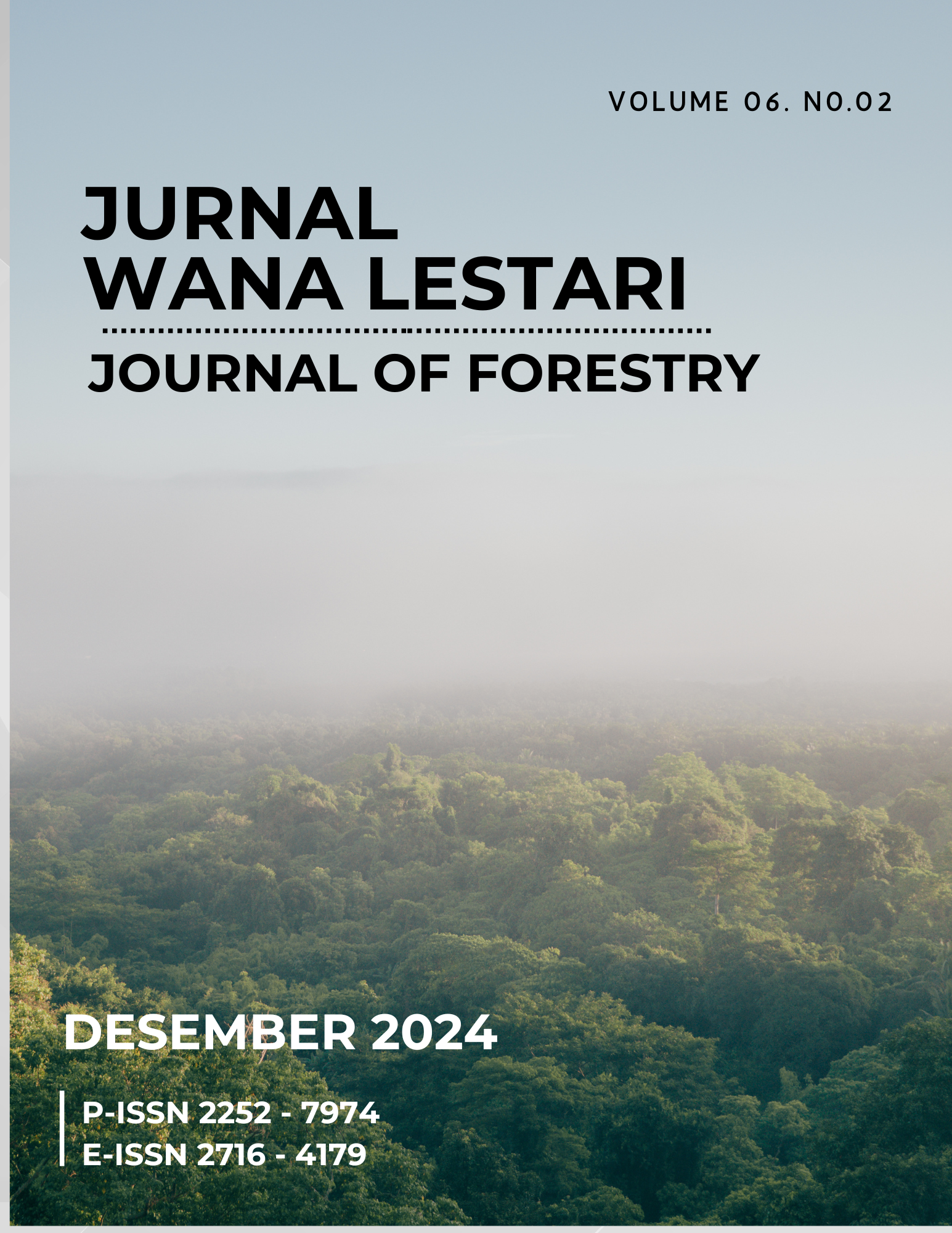Analisis Dampak Pengelolaan Hutan Kemasyarakatan (HKm) Terhadap Perekonomian Gapoktan Oliftataf (Studi Kasusdesa Bikekneno, Kecamatan Mollo Selatan, Kabupaten Timor Tengah Selatan)
Abstract
The existence of communities around or within the Mutis Timau Protected Forest Area causes problems in forest areas such as forest fires and logging. One of the programs issued by the Ministry of Forestry related to the above problems is community empowerment through the Community Forest (HKm) program, one of which is located in Bikekneno Village, South Mollo District, South Central Timor Regency. This study aims to determine the impact of community forest management on the economy of Gapoktan Oliftataf. The method used in this research is a qualitative method. Data collection techniques were carried out using interview, observation and documentation techniques. Analyzing the contribution of community income in Bikekneno Village from HKm income and non HKm income. The income of non HKm members of Gapoktan Oliftataf is greater than HKm business income. Non HKm income is greater than HKm income because most respondents have more livestock, besides that there are respondents whose land productivity has decreased and some respondents manage land whose results are for their own consumption so that they experience a decrease in income. The income obtained from the HKm business per year is Rp. 150,100,000 and the income from the Non HKm business is Rp. 416,000,000. The contribution of the HKm business of Gapoktan Oliftataf members averaged 26.51% and the contribution of non HKm income was 73.49%.

 Kristina Gale(1*)
Kristina Gale(1*)







